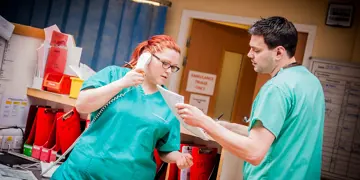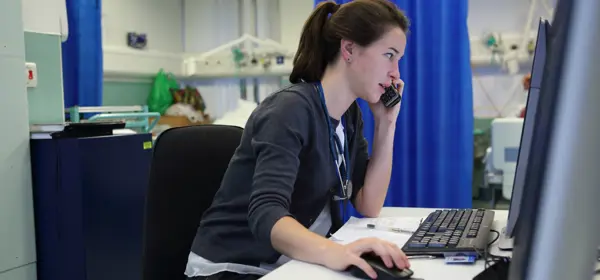Call to decentralise healthcare
Call to decentralise healthcare
BMA Wales' manifesto seeks a larger share of funding for general practice
BMA Wales Cymru is calling for a radical shift in policy and funding to ‘create a safe, effective and sustainable service’ in its manifesto ahead of May’s Senedd elections.
Health in our hands urges the next Welsh government to rethink ‘a system under unsustainable strain’ by decentralising healthcare rescuing general practice from the brink, valuing and retaining doctors and adopting a ‘serious prevention agenda’.
As BMA Wales council chair Iona Collins put it: ‘All roads lead to accident and emergency at the moment.’
Central to its plan is the call for a greater proportion of NHS Wales funding to be directed towards general practice – specifically restoring it to a historic 8.7 per cent within three years, compared with the current 6.01 per cent. It goes further, with an aspiration to see GP funding rising to nearer 11 per cent within five years.
The manifesto also focuses on fairer pay for doctors, prioritising patient safety, and recruiting and retaining more doctors to bring down waiting lists and provide a higher standard of care.
'Cascade of pressure'
Dr Collins, a consultant orthopaedic spinal surgeon based in Swansea, said increased funding for general practice would mean healthcare needs being met more promptly, more appropriately and more cost-efficiently, which would relieve many of the pressures on secondary care.
The current 'cascade of pressure' on secondary care means overstretched hospitals are routinely spilling over, causing patients to line corridors for so-called 'corridor care', as a direct result of insufficient ward capacity, she said.
'People are being inappropriately sent to hospital for issues that don't require hospital care specifically, but there are no other options available. The hospitals are overwhelmed, with patients waiting for days in an accident and emergency waiting room, with people receiving medical care in inappropriate locations like walkways and fire exits ... this all increases the likelihood of avoidable harm.
‘We should be making funding work better for us, so people have their family doctor and wrap-around care in the community that enables them to remain closer to home and avoid getting so sick that they require the most expensive care, which is in hospitals.
'A child with a broken wrist goes to school in a cast but an elderly person living at home with a broken wrist may have no choice but to have hospital admission, because they can't self-care in a cast. That's crazy. When someone is in hospital, they are significantly more likely to lose their independence, so, how is this helping people?'
Reducing the burden on secondary care by restoring (or introducing) certain functions to general practice is suggested, for example enabling surgeries to be dispensing practices or GPs to perform minor surgery, especially in areas at considerable distances from the nearest hospital.
Wales’ specific needs – including deepening health inequalities and a rise in chronic health conditions – require bespoke solutions, Dr Collins said.
In her personal opinion, the Barnett formula – which the UK treasury uses to calculate the annual block grants for the devolved nations – needs to be reviewed and updated. It does not account for Wales’ older population, its geography or its lower population density, which means health infrastructure costs are far higher. ‘Wales’ number one challenge is public sector funding,’ she said.
Despite the precarious state of the current health system, Dr Collins remains optimistic. In the manifesto’s foreword, she asserts that ‘a healthier future is possible’. Yet, she goes further: ‘It's inevitable because it's inconceivable that we can allow the health of the nation to continue deteriorating as it is at the moment.’




